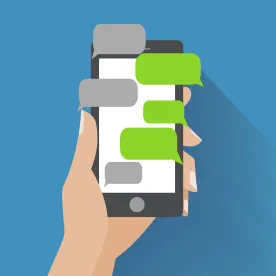More than eight individuals lose their lives every day by distracted driving and another 1000 are injured. Even more disturbing, this is the first time in 10 years that the number of car accidents in America has risen significantly. Sadly, this spike in the number of car crashes is the result of texting while driving. Fortunately, the new Textalyzer device might be the answer to the problem with its ability to detect when a vehicle operator is texting while behind the wheel.
 While drunk driving has always known to be dangerous to the motorist, passengers and others sharing the roadway, texting while driving is just as bad as driving impaired by alcohol or drugs. This is because texting causes the driver to avert their eyes from the roadway to send or read a text message. The amount of time it takes to read a simple text while traveling at 55 miles an hour is equal to the distance of a football field. In that distance, a myriad of obstacles can appear that could result in a crash.
While drunk driving has always known to be dangerous to the motorist, passengers and others sharing the roadway, texting while driving is just as bad as driving impaired by alcohol or drugs. This is because texting causes the driver to avert their eyes from the roadway to send or read a text message. The amount of time it takes to read a simple text while traveling at 55 miles an hour is equal to the distance of a football field. In that distance, a myriad of obstacles can appear that could result in a crash.
The Textalyzer device is to distracted driving what a breathalyzer is to drunk driving. New York legislators are considering equipping police officers in New York with a Textalyzer device to help determine if the motorist involved in a collision was texting while driving. The proposed bill under consideration proposes to allow law enforcement authorities the legal right to examine smartphones at the scene of an accident.
Rising Car Crash Statistics
Purportedly, a phone user’s right to privacy is not impacted by the device. This is because the device manufacturer say the Textalyzer does not display content of the phone including photographs, contacts or conversations, but merely shows if the phone was in use for texting during the time of the accident. Legislators have partnered with DORC (Distracted Operators Risk Casualties), the company that created the device. The company’s co-founder Ben Lieberman’s son was killed in New York City in 2011 by a distracted driver.
The legislation is unprecedented in that it requires drivers recently involved in an automobile accident to submit their mobile phones to law enforcement officers for testing. Lieberman stated in a press release that “When people are held accountable for drunk driving, that’s when positive change occurs. It’s time to recognize the distracted driving is a similar impairment, and should be dealt with in a similar fashion. This is a way to address people were causing damage.”
Statistics released by the National Safety Council have shown an increase in the number of car crashes over the last decade. Lieberman released a statement saying “Since drunk driving is down in today’s cars are built better than ever, the addition of mobile devices in our lives becomes the most likely reason for this sudden increase.”
Pushback from the Civil Liberties Union
The device is still in the development phase and is yet to reach widespread testing. Even though the scanners ostensibly do not have the capacity to access personal information on the driver, the New York Civil Liberties Union is pushing back hard on the proposed legislation. Donna Lieberman (no relation to Ben Lieberman) the executive director for NYCLU stated that “distracted driving is a serious public safety concern, but this bill is ill-conceived and misguided, and fraught with legal and practical problems.” The Director also said that “This proposal appears likely to impute suspicion and guilt for a wide range of lawful activity, and to invite cops to seize phones without justification or a warrant.”
Ms. Lieberman notes that “there are existing legal channels for law enforcement to access a phone or phone records of the driver if they have grounds to suspect distracted driving has occurred, rather than field testing every fender bender.”
While the bill proposed by New York lawmakers appears to be a win for all motorist sharing the roadway, the reality of the device’s technology might react differently in the field. This is because there may be ways to avoid data detection when the Textalyzer is used. This could include encrypting the phone or using an application that it scans the phone’s metadata.
Some suggest that the phone testing by law enforcement officers might not be truly anonymous. There are those who remain skeptical of how government agencies will examine the phone’s data if possible. Even though there is a lot of uncertainty to the efficiency of the device, it could be a game changer to reduce the number of accidents that occur on our nation’s roadways, highways and streets.




 />i
/>i

